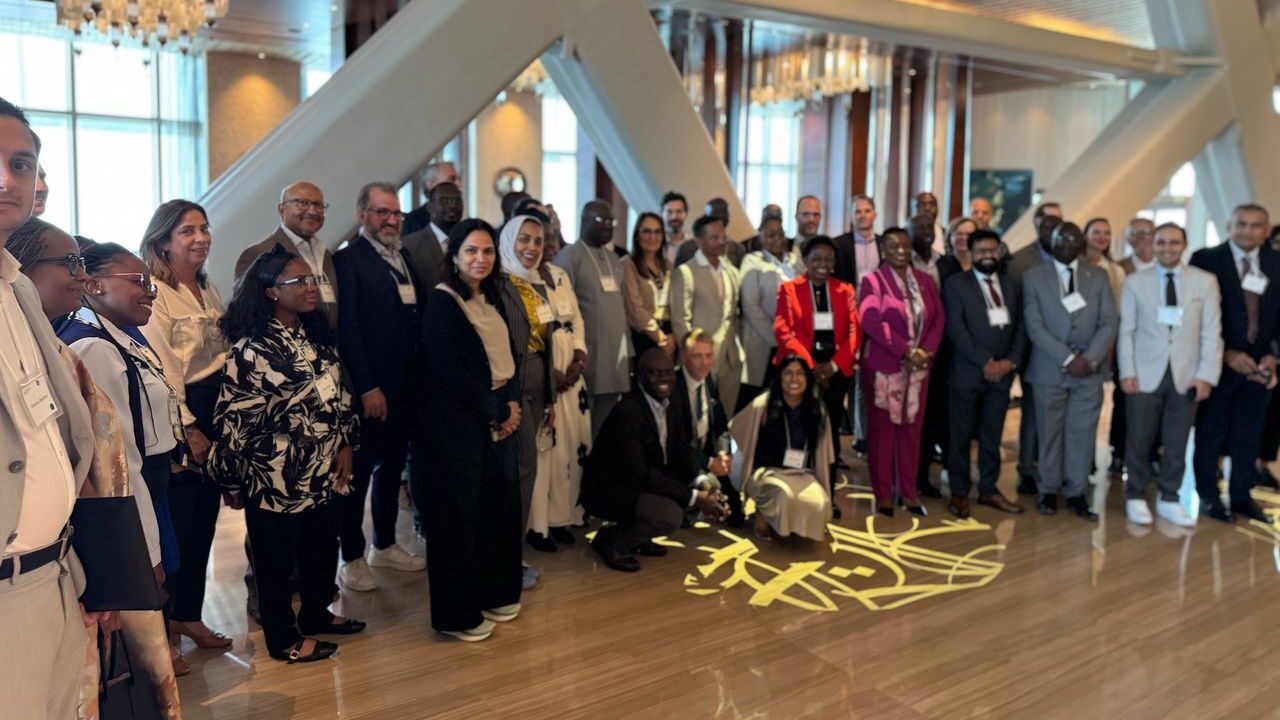May 9, 2025
New momentum for monoclonal antibodies manufacturing in Africa
Abu Dhabi workshop at WLPF advances Africa-led strategy for monoclonal antibody manufacturing and access.

Created in the lab with ability to mimic natural antibodies — monoclonal antibodies, or mAbs, are one of the most promising medical tools available today.
Researchers widely use them in high-income countries for cancer and autoimmune diseases. They are now exploring their potential to prevent and treat infectious diseases, including HIV, respiratory syncytial virus, and malaria.
But, while science has advanced, access has not. In many parts of Africa, mAbs remain out of reach due to high production costs, prohibitive prices, few licences outside of high-income countries, limited local manufacturing, and fragmented regulation.
In addition to providing highly relevant solutions to Africa’s growing and shifting illness burden, mAbs could logically profit from Africa’s substantial and growing involvement in global health research.
The case for mAbs in Africa
While mAbs are already changing how the world treats disease, most of the benefits remain concentrated in high-income countries. Very few infectious disease mAbs are designed with low-resource settings in mind. The ones that exist tend to face steep challenges, from lack of investment in R&D and uncertain markets.
Yet, the potential for mAbs in Africa is significant. Whether for maternal and child health, tackling emerging infections, or complementing vaccine strategies, mAbs could fill some of the biggest gaps in the region’s healthcare response.
Recognizing this, IAVI and Africa Centres for Disease Control and Prevention (Africa CDC) teamed up to kick off a dedicated dialogue series aimed at making mAbs more accessible and led by Africans.
A two-part workshop series to drive regional strategy
The Advancing a Sustainable Supply and Demand Ecosystem for mAbs in Africa workshop was held in April 2025 on the sidelines of the World Local Production Forum (WLPF) in Abu Dhabi, the United Arab Emirates. The meeting marked the second in a two-part series co-hosted by IAVI and Africa CDC, with support from Wellcome and Unitaid. The workshops are part of an ongoing partnership under a memorandum of understanding between IAVI and Africa CDC, which aims to align new technologies like mAbs with Africa’s public health priorities.
The first workshop in this series took place in Lusaka in late 2023, on the sidelines of the Africa CDC-hosted Conference on Public Health in Africa (CPHIA). That session focused on setting priorities for where mAbs could have the greatest health impact across the continent. The outcomes were captured in this report: Advancing Access to Monoclonal Antibodies in Africa: Setting Priorities, Assessing Feasibility, and Enabling R&D and Manufacturing.
Governments, global partners, African manufacturers, investors, and health leaders who gathered for the Abu Dhabi workshop focused on helping countries make more of their own health products, from vaccines and diagnostics to life-saving medicines. It was the ideal setting for IAVI and Africa CDC to hold the second workshop in their joint mAbs series, focusing this time on how Africa can build a stronger supply and demand system for mAbs.
This workshop shifted the focus to the supply and demand, asking critical questions such as: How can African manufacturers scale up local production of mAbs in a sustainable way? What policies, financing tools, and partnerships can help unlock regional manufacturing potential? Key highlights from the sessions were: taking stock of capacity, sharing practical challenges, and identifying what’s needed to move forward.
Participants reviewed a new regional landscape assessment of mAbs manufacturing, heard directly from African producers about the support they need to grow, and explored ideas around pooled financing, smarter regulatory models, and regional procurement approaches. Funders also weighed in on how investment strategies could better support infectious disease mAbs in the African context.
The meeting emphasized the growing agreement on which disease areas to prioritize, amongst the practitioners present, while local manufacturers are stepping up yet need additional technical, financial, and regulatory support. While interest from partners is growing, more alignment is needed to translate momentum into long-term progress
Evidence informing the dialogue
The workshops build on recent research and policy work led by IAVI and partners, such as the Access to Monoclonal Antibodies in Africa: A Call to Action, a joint report with Impact Global Health laying out the current barriers to mAbs access and making the case for urgent action. Novel Business Models for Accessible mAbs in LMICs, proposes new approaches to make mAbs more affordable and sustainable. The Lusaka Workshop Report, summarizes the outcomes of the first IAVI–Africa CDC workshop, focused on priority-setting and feasibility.
These efforts are closely tied to Africa CDC’s broader agenda: to strengthen health systems, increased regional manufacturing, and reduce the continent’s dependence on external suppliers. It’s part of the New Public Health Order and reflects how continental leadership is moving from vision to execution. The partnership between IAVI and Africa CDC remains focused on ensuring that mAbs are not only introduced to Africa but developed and made accessible in ways that align with the region’s health priorities and systems.